Mobile:+86-311-808-126-83
E-mail:info@ydcastings.com
Premium Aluminium Alloy for Casting: Strong & Lightweight Solutions
Introduction to Aluminium Alloys for Casting in Industrial Applications
The strategic selection of materials is paramount in modern engineering, and aluminium alloy for casting stands as a cornerstone in numerous industrial sectors. Renowned for its exceptional strength-to-weight ratio, superior corrosion resistance, and excellent thermal conductivity, aluminium casting offers unparalleled versatility. This material's ability to be cast into intricate shapes with high precision makes it indispensable for components across diverse applications, from high-performance automotive parts to critical aerospace structures and robust industrial machinery. Understanding its technical nuances, manufacturing processes, and application advantages is key for B2B decision-makers seeking optimal material solutions.
Compared to other casting methods like fusione di acciaio inossidabile, aluminium offers distinct benefits, particularly in weight-sensitive applications where performance cannot be compromised. The continuous advancements in foundry technology ensure that modern aluminium castings meet the most stringent industry standards, offering reliability and efficiency that drive innovation and operational excellence.
Detailed Process Flow: Manufacturing Aluminium Castings
The production of high-quality aluminium alloy for casting involves a meticulous, multi-stage process designed to ensure structural integrity and precise dimensional accuracy. This comprehensive workflow, from raw material to finished component, adheres to rigorous quality control protocols and industry standards such as ISO 9001 and ANSI specifications.
Key Manufacturing Steps:
- Material Preparation: High-purity aluminium ingots, often combined with specific alloying elements (e.g., silicon, magnesium, copper) to achieve desired material properties, are melted in induction or gas-fired furnaces. Precise control over temperature and atmosphere prevents oxidation and maintains alloy composition. Common alloys include A356, A380, and 6061, each selected for specific mechanical properties and castability.
- Mold Creation:
- Sand Casting: For large or complex parts, aluminium sand casting utilizes sand molds, often made from silica or zircon sand bonded with clay or chemical binders. This method is highly flexible for prototypes and short runs. Modern foundries may employ green sand metal casting for its cost-effectiveness and recyclability.
- Die Casting: For high-volume production of intricate, thin-walled components, aluminum casting die processes (high-pressure, low-pressure, gravity) are employed. Permanent steel molds ensure exceptional dimensional accuracy and surface finish.
- Investment Casting: For extremely complex geometries and superior surface finish, a ceramic shell is built around a wax pattern, which is then melted out before metal pouring.
- Pouring: The molten aluminium alloy, maintained at its optimal pouring temperature (typically 700-750°C), is carefully transferred and poured into the prepared mold cavity. This step requires precision to avoid turbulence, which can lead to gas entrapment or inclusions.
- Solidification: The molten metal cools and solidifies within the mold. Controlled cooling rates are crucial to achieve the desired microstructure and mechanical properties, preventing defects like shrinkage porosity.
- Shakeout/Demolding: Once cooled, the casting is removed from the mold. For sand casting, sand is broken away; for die casting, the part is ejected from the die.
- Fettling and Finishing: Risers, gates, and excess material (flash) are removed through processes like grinding, sawing, or abrasive blasting.
- Heat Treatment: Many aluminium castings undergo heat treatment (e.g., solution treatment, artificial aging) to enhance mechanical properties such as hardness, strength, and ductility.
- CNC Machining: For components requiring tight tolerances and intricate features, subsequent CNC machining is performed. This allows for precise finishing, drilling, tapping, and milling operations.
- Quality Control & Testing: Each batch undergoes rigorous inspection, including visual checks, dimensional verification, non-destructive testing (NDT) like X-ray, ultrasonic, and penetrant testing, and destructive testing (tensile strength, hardness, impact) to ensure compliance with material specifications and performance requirements. Adherence to standards like ASTM B26/B26M, ASTM B108, and ISO 8062 is fundamental.
This detailed process ensures that the finished components possess a service life of many decades in challenging environments, proving their value in target industries such as petrochemical, metallurgy, and water supply & drainage. Advantages include significant energy saving due to lightweighting and superior corrosion resistance, reducing maintenance costs and extending operational uptime.
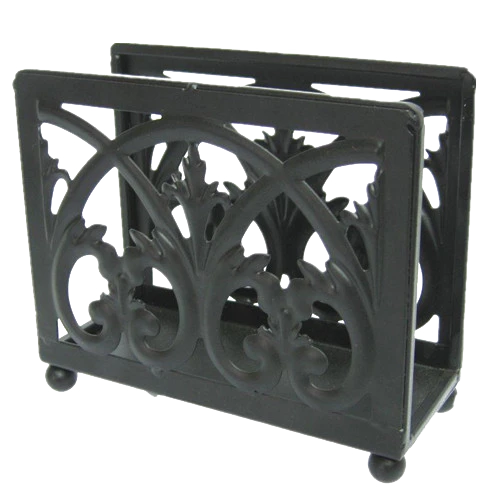
Industry Trends and Market Dynamics for Aluminium Casting
The global market for aluminium metal casting is experiencing robust growth, driven by several key trends. The increasing demand for lightweight components in automotive and aerospace sectors, fueled by stricter emission standards and fuel efficiency mandates, remains a primary catalyst. Electric Vehicles (EVs) are also significantly contributing, as aluminium castings are crucial for battery enclosures, motor housings, and structural components due to their weight reduction capabilities and thermal management properties.
Furthermore, advancements in digital manufacturing, including simulation software for casting processes and additive manufacturing for prototyping, are enhancing design complexity and reducing development cycles. The focus on sustainability also drives the adoption of recycled aluminium, making casting an environmentally friendly option. Foundries are increasingly investing in automation and robotics to improve efficiency, reduce labor costs, and ensure consistent quality, especially in processes like aluminium sand casting and die casting. This commitment to innovation ensures that aluminium alloys remain at the forefront of material science for high-performance applications.
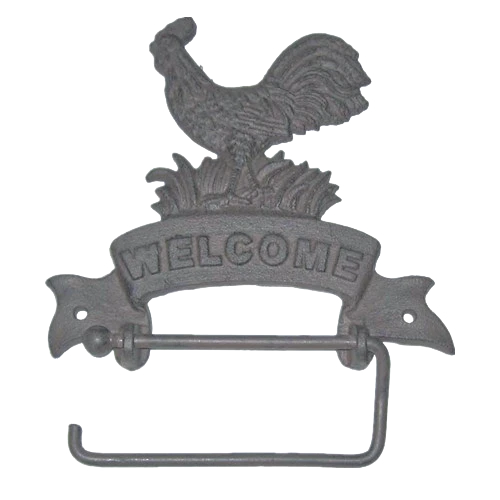
Technical Specifications and Material Properties
Selecting the correct aluminium alloy for casting hinges on a detailed understanding of its technical specifications. Different alloys offer varying combinations of strength, ductility, corrosion resistance, and castability, tailored for specific performance requirements. Below is a comparison of common aluminium casting alloys:
Product Specification Table: Common Aluminium Casting Alloys
Note: Values are typical and can vary based on specific casting processes, heat treatment, and exact alloy composition. Source: ASM Handbook, Vol. 15: Casting.
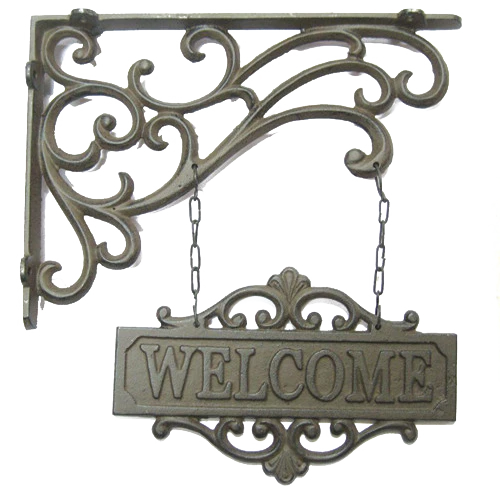
Application Scenarios Across Diverse Industries
The versatility of aluminium alloy for casting makes it a preferred material across an extensive range of industries, where performance, durability, and weight reduction are critical.
- Automotive Industry: From engine blocks, cylinder heads, transmission housings, and wheel components to complex structural nodes for electric vehicles, aluminium castings significantly reduce vehicle weight, improving fuel efficiency and reducing emissions. Their excellent thermal management properties are also crucial for EV battery cooling systems.
- Aerospace Sector: For aircraft components requiring a high strength-to-weight ratio, such as fuselage parts, brackets, and landing gear components, precision aluminium metal casting ensures structural integrity without excessive weight penalties.
- Industrial Machinery: Components for pumps, valves, compressors, gearboxes, and machine tool bases benefit from aluminium’s castability and resistance to corrosion in various operating environments.
- Electronics and Telecommunications: Heat sinks, enclosures for electronic equipment, and communication infrastructure components leverage aluminium’s excellent thermal conductivity and EMI shielding properties.
- Medical Equipment: Lightweight, corrosion-resistant housings and structural parts for medical devices, diagnostic equipment, and patient mobility aids.
- Water Supply & Drainage: Pump housings, impellers, and valve bodies in water treatment plants and irrigation systems benefit from aluminium's corrosion resistance and formability, leading to durable and efficient systems.
- Petrochemical and Metallurgy: Components for material handling, specialized valves, and structural elements in processing facilities where resistance to corrosive agents and high temperatures (with appropriate alloy selection) is necessary.
The ability to produce complex geometries through casting minimizes secondary operations and assembly, leading to cost-effective solutions in these demanding environments.
Technical Advantages of Aluminium Alloy Castings
The inherent properties of aluminium alloy for casting offer a multitude of technical advantages that make it superior to many other materials in specific applications:
- Superior Strength-to-Weight Ratio: Aluminium alloys provide significant weight reduction without compromising structural integrity. This is crucial for applications where reducing inertia, improving fuel efficiency, or increasing payload capacity is critical.
- Excellent Corrosion Resistance: Aluminium naturally forms a passive oxide layer that protects against rust and corrosion, even in harsh industrial environments or marine atmospheres. This extends the service life of components and reduces maintenance.
- High Thermal and Electrical Conductivity: These properties make aluminium castings ideal for heat dissipation applications (e.g., heat sinks, engine components) and electrical housings that require good conductivity or EMI shielding.
- Exceptional Castability: Aluminium can be cast into extremely complex and thin-walled geometries, minimizing the need for extensive post-casting machining and allowing for integrated designs that reduce part count and assembly time.
- Recyclability: Aluminium is 100% recyclable with minimal loss of properties, making it an environmentally sustainable choice. This aligns with global efforts towards circular economy principles.
- Dimensional Stability: With precise casting techniques and appropriate heat treatments, aluminium castings can achieve tight dimensional tolerances, critical for precision engineering.
- Cost-Effectiveness: While initial material costs might vary, the overall cost-effectiveness is realized through reduced machining, lighter weight (leading to energy savings in transport/operation), and longer service life.
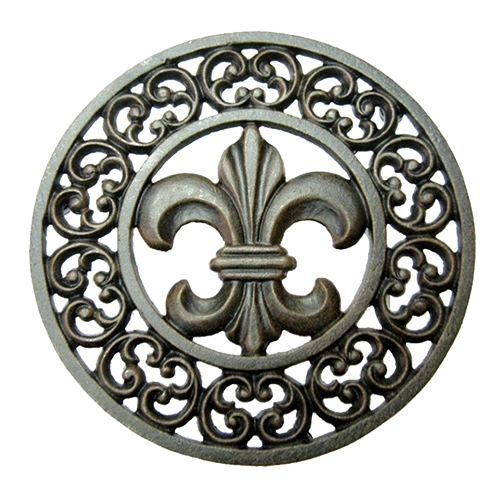
Vendor Comparison and Customized Solutions
Choosing the right manufacturing partner for aluminium alloy for casting is crucial for project success. A leading vendor differentiates itself not just by capacity, but by expertise, commitment to quality, and capability for tailored solutions.
Key Differentiators in Vendor Selection:
- Technical Expertise: A reputable vendor possesses deep metallurgical knowledge, understanding of various casting processes (sand, die, investment), and post-processing techniques (heat treatment, machining). They can advise on optimal alloy selection (e.g., A356 for aerospace vs. A380 for general-purpose die casting).
- Quality Certifications: Compliance with international standards such as ISO 9001, AS9100 (aerospace), IATF 16949 (automotive) demonstrates a robust quality management system. Leading manufacturers often have FDA-compliant processes for medical applications.
- Advanced Facilities: State-of-the-art foundries equipped with modern melting furnaces, automated pouring systems, advanced mold-making capabilities (including 3D sand printing), and comprehensive inspection equipment (X-ray, CMM).
- Customization Capabilities: The ability to offer bespoke solutions, from initial design consultation and rapid prototyping to complex tooling development and specialized finishing (e.g., anodizing, powder coating), is paramount. This includes optimizing geometry for specific performance requirements and integrating features that reduce assembly time.
- Post-Casting Services: Comprehensive in-house machining, finishing, and assembly services streamline the supply chain and ensure tighter control over quality and lead times.
Vendor Comparison Table (Illustrative)
A strategic partner will work collaboratively to develop customized solutions, ensuring that the final aluminium alloy for casting components meet exacting specifications and performance criteria, delivering optimal value for your investment. This includes tailored alloy compositions, specialized heat treatments, and precision machining to achieve superior functional outcomes.
Application Case Studies: Real-World Impact
Demonstrating the tangible benefits of high-quality aluminium alloy for casting through real-world applications underscores its value proposition for B2B clients.
Case Study 1: High-Performance Automotive Engine Block
A leading automotive manufacturer sought to reduce the weight of their new generation of high-performance internal combustion engines while maintaining structural rigidity and thermal management capabilities. By utilizing a custom-engineered A356 aluminium alloy and advanced low-pressure die casting, our partner foundry produced intricate engine blocks that were 30% lighter than their cast iron predecessors. This significant weight reduction directly contributed to improved fuel economy, reduced emissions, and enhanced vehicle dynamics. The precision casting process allowed for integrated cooling channels and mounting points, minimizing post-casting machining and assembly time, thereby reducing overall production costs. Customer feedback highlighted the exceptional performance and durability of the lightweight components.
Case Study 2: Aerospace Bracket for Structural Integrity
An aerospace client required lightweight yet extremely strong brackets for a critical structural application in their new regional jet. The challenge was to achieve tight tolerances and superior fatigue resistance. Through investment casting with a specialized aerospace-grade aluminium alloy and subsequent solution heat treatment (T6 temper), the foundry delivered brackets that met stringent AS9100 quality standards. The process allowed for complex geometries to be cast near-net-shape, reducing material waste and machining costs. The final components passed rigorous fatigue testing, providing the client with reliable parts that contribute to both aircraft safety and operational efficiency over a projected service life of 25 years.
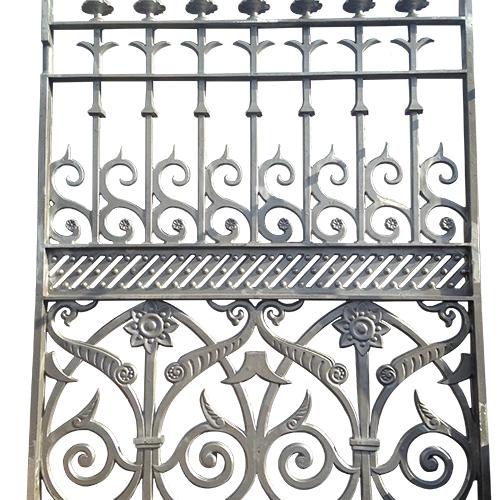
Frequently Asked Questions (FAQ)
Q1: What are the typical lead times for custom aluminium castings?
A1: Lead times vary significantly based on complexity, chosen casting method, tooling requirements, and order volume. For new projects requiring tooling, initial samples can typically be delivered within 8-12 weeks. Production runs following sample approval can range from 4-6 weeks for regular orders, with options for expedited services for urgent requirements. We work closely with clients to establish realistic timelines and fulfillment schedules.
Q2: What warranty commitments are provided for aluminium casting products?
A2: We stand by the quality of our aluminium alloy for casting products. A standard 1-year warranty is provided against manufacturing defects and material failures under normal operating conditions. Extended warranty options are available for specific long-term projects and high-value components. Our commitment includes ensuring compliance with all agreed-upon specifications and performance metrics.
Q3: What kind of customer support is available after purchase?
A3: Our dedicated after-sales support team is available to assist with any technical inquiries, performance concerns, or feedback. We offer ongoing technical consultation, troubleshooting assistance, and support for reordering or design modifications. Our goal is to ensure long-term satisfaction and successful integration of our components into your systems.
Conclusion
The strategic application of aluminium alloys for casting represents a critical advantage for industries striving for innovation, efficiency, and sustainability. From optimizing mechanical properties to enabling complex geometries and ensuring long-term reliability, these alloys are pivotal in numerous high-performance applications. Partnering with an expert foundry that emphasizes technical excellence, quality assurance, and customized solutions is essential for harnessing the full potential of aluminium casting technologies.
References
- ASM International. (2008). ASM Handbook, Volume 15: Casting. ASM International.
- Campbell, J. (2003). Castings Practice: The Ten Rules of Castings. Butterworth-Heinemann.
- International Organization for Standardization. (2015). ISO 9001:2015 Quality management systems — Requirements.
- American Society for Testing and Materials. (2019). ASTM B26/B26M-19: Standard Specification for Aluminum-Alloy Sand Castings.
- Aluminum Association. (2020). The Aluminum Design Manual.
-
Materials Used in Manufacturing Cap End Pipe FittingsNotiziaNov.24,2025
-
Material Properties of CF8M CastingNotiziaNov.24,2025
-
How to Inspect Pump Cap Ends for DamageNotiziaNov.21,2025
-
Backward Curved Impeller – Efficient Airflow Solutions for Industry | YD CastingsNotiziaNov.21,2025
-
Automobile Water Pump - Efficient, Quiet, Durable & ElectricNotiziaNov.21,2025
-
Impeller for Pumps – High-Efficiency, Durable, OEM-ReadyNotiziaNov.21,2025
Premium Aluminium Alloy for Casting: Strong & Lightweight Solutions
Introduction to Aluminium Alloys for Casting in Industrial Applications
The strategic selection of materials is paramount in modern engineering, and aluminium alloy for casting stands as a cornerstone in numerous industrial sectors. Renowned for its exceptional strength-to-weight ratio, superior corrosion resistance, and excellent thermal conductivity, aluminium casting offers unparalleled versatility. This material's ability to be cast into intricate shapes with high precision makes it indispensable for components across diverse applications, from high-performance automotive parts to critical aerospace structures and robust industrial machinery. Understanding its technical nuances, manufacturing processes, and application advantages is key for B2B decision-makers seeking optimal material solutions.
Compared to other casting methods like fusione di acciaio inossidabile, aluminium offers distinct benefits, particularly in weight-sensitive applications where performance cannot be compromised. The continuous advancements in foundry technology ensure that modern aluminium castings meet the most stringent industry standards, offering reliability and efficiency that drive innovation and operational excellence.
Detailed Process Flow: Manufacturing Aluminium Castings
The production of high-quality aluminium alloy for casting involves a meticulous, multi-stage process designed to ensure structural integrity and precise dimensional accuracy. This comprehensive workflow, from raw material to finished component, adheres to rigorous quality control protocols and industry standards such as ISO 9001 and ANSI specifications.
Key Manufacturing Steps:
- Material Preparation: High-purity aluminium ingots, often combined with specific alloying elements (e.g., silicon, magnesium, copper) to achieve desired material properties, are melted in induction or gas-fired furnaces. Precise control over temperature and atmosphere prevents oxidation and maintains alloy composition. Common alloys include A356, A380, and 6061, each selected for specific mechanical properties and castability.
- Mold Creation:
- Sand Casting: For large or complex parts, aluminium sand casting utilizes sand molds, often made from silica or zircon sand bonded with clay or chemical binders. This method is highly flexible for prototypes and short runs. Modern foundries may employ green sand metal casting for its cost-effectiveness and recyclability.
- Die Casting: For high-volume production of intricate, thin-walled components, aluminum casting die processes (high-pressure, low-pressure, gravity) are employed. Permanent steel molds ensure exceptional dimensional accuracy and surface finish.
- Investment Casting: For extremely complex geometries and superior surface finish, a ceramic shell is built around a wax pattern, which is then melted out before metal pouring.
- Pouring: The molten aluminium alloy, maintained at its optimal pouring temperature (typically 700-750°C), is carefully transferred and poured into the prepared mold cavity. This step requires precision to avoid turbulence, which can lead to gas entrapment or inclusions.
- Solidification: The molten metal cools and solidifies within the mold. Controlled cooling rates are crucial to achieve the desired microstructure and mechanical properties, preventing defects like shrinkage porosity.
- Shakeout/Demolding: Once cooled, the casting is removed from the mold. For sand casting, sand is broken away; for die casting, the part is ejected from the die.
- Fettling and Finishing: Risers, gates, and excess material (flash) are removed through processes like grinding, sawing, or abrasive blasting.
- Heat Treatment: Many aluminium castings undergo heat treatment (e.g., solution treatment, artificial aging) to enhance mechanical properties such as hardness, strength, and ductility.
- CNC Machining: For components requiring tight tolerances and intricate features, subsequent CNC machining is performed. This allows for precise finishing, drilling, tapping, and milling operations.
- Quality Control & Testing: Each batch undergoes rigorous inspection, including visual checks, dimensional verification, non-destructive testing (NDT) like X-ray, ultrasonic, and penetrant testing, and destructive testing (tensile strength, hardness, impact) to ensure compliance with material specifications and performance requirements. Adherence to standards like ASTM B26/B26M, ASTM B108, and ISO 8062 is fundamental.
This detailed process ensures that the finished components possess a service life of many decades in challenging environments, proving their value in target industries such as petrochemical, metallurgy, and water supply & drainage. Advantages include significant energy saving due to lightweighting and superior corrosion resistance, reducing maintenance costs and extending operational uptime.

Industry Trends and Market Dynamics for Aluminium Casting
The global market for aluminium metal casting is experiencing robust growth, driven by several key trends. The increasing demand for lightweight components in automotive and aerospace sectors, fueled by stricter emission standards and fuel efficiency mandates, remains a primary catalyst. Electric Vehicles (EVs) are also significantly contributing, as aluminium castings are crucial for battery enclosures, motor housings, and structural components due to their weight reduction capabilities and thermal management properties.
Furthermore, advancements in digital manufacturing, including simulation software for casting processes and additive manufacturing for prototyping, are enhancing design complexity and reducing development cycles. The focus on sustainability also drives the adoption of recycled aluminium, making casting an environmentally friendly option. Foundries are increasingly investing in automation and robotics to improve efficiency, reduce labor costs, and ensure consistent quality, especially in processes like aluminium sand casting and die casting. This commitment to innovation ensures that aluminium alloys remain at the forefront of material science for high-performance applications.

Technical Specifications and Material Properties
Selecting the correct aluminium alloy for casting hinges on a detailed understanding of its technical specifications. Different alloys offer varying combinations of strength, ductility, corrosion resistance, and castability, tailored for specific performance requirements. Below is a comparison of common aluminium casting alloys:
Product Specification Table: Common Aluminium Casting Alloys
Note: Values are typical and can vary based on specific casting processes, heat treatment, and exact alloy composition. Source: ASM Handbook, Vol. 15: Casting.

Application Scenarios Across Diverse Industries
The versatility of aluminium alloy for casting makes it a preferred material across an extensive range of industries, where performance, durability, and weight reduction are critical.
- Automotive Industry: From engine blocks, cylinder heads, transmission housings, and wheel components to complex structural nodes for electric vehicles, aluminium castings significantly reduce vehicle weight, improving fuel efficiency and reducing emissions. Their excellent thermal management properties are also crucial for EV battery cooling systems.
- Aerospace Sector: For aircraft components requiring a high strength-to-weight ratio, such as fuselage parts, brackets, and landing gear components, precision aluminium metal casting ensures structural integrity without excessive weight penalties.
- Industrial Machinery: Components for pumps, valves, compressors, gearboxes, and machine tool bases benefit from aluminium’s castability and resistance to corrosion in various operating environments.
- Electronics and Telecommunications: Heat sinks, enclosures for electronic equipment, and communication infrastructure components leverage aluminium’s excellent thermal conductivity and EMI shielding properties.
- Medical Equipment: Lightweight, corrosion-resistant housings and structural parts for medical devices, diagnostic equipment, and patient mobility aids.
- Water Supply & Drainage: Pump housings, impellers, and valve bodies in water treatment plants and irrigation systems benefit from aluminium's corrosion resistance and formability, leading to durable and efficient systems.
- Petrochemical and Metallurgy: Components for material handling, specialized valves, and structural elements in processing facilities where resistance to corrosive agents and high temperatures (with appropriate alloy selection) is necessary.
The ability to produce complex geometries through casting minimizes secondary operations and assembly, leading to cost-effective solutions in these demanding environments.
Technical Advantages of Aluminium Alloy Castings
The inherent properties of aluminium alloy for casting offer a multitude of technical advantages that make it superior to many other materials in specific applications:
- Superior Strength-to-Weight Ratio: Aluminium alloys provide significant weight reduction without compromising structural integrity. This is crucial for applications where reducing inertia, improving fuel efficiency, or increasing payload capacity is critical.
- Excellent Corrosion Resistance: Aluminium naturally forms a passive oxide layer that protects against rust and corrosion, even in harsh industrial environments or marine atmospheres. This extends the service life of components and reduces maintenance.
- High Thermal and Electrical Conductivity: These properties make aluminium castings ideal for heat dissipation applications (e.g., heat sinks, engine components) and electrical housings that require good conductivity or EMI shielding.
- Exceptional Castability: Aluminium can be cast into extremely complex and thin-walled geometries, minimizing the need for extensive post-casting machining and allowing for integrated designs that reduce part count and assembly time.
- Recyclability: Aluminium is 100% recyclable with minimal loss of properties, making it an environmentally sustainable choice. This aligns with global efforts towards circular economy principles.
- Dimensional Stability: With precise casting techniques and appropriate heat treatments, aluminium castings can achieve tight dimensional tolerances, critical for precision engineering.
- Cost-Effectiveness: While initial material costs might vary, the overall cost-effectiveness is realized through reduced machining, lighter weight (leading to energy savings in transport/operation), and longer service life.

Vendor Comparison and Customized Solutions
Choosing the right manufacturing partner for aluminium alloy for casting is crucial for project success. A leading vendor differentiates itself not just by capacity, but by expertise, commitment to quality, and capability for tailored solutions.
Key Differentiators in Vendor Selection:
- Technical Expertise: A reputable vendor possesses deep metallurgical knowledge, understanding of various casting processes (sand, die, investment), and post-processing techniques (heat treatment, machining). They can advise on optimal alloy selection (e.g., A356 for aerospace vs. A380 for general-purpose die casting).
- Quality Certifications: Compliance with international standards such as ISO 9001, AS9100 (aerospace), IATF 16949 (automotive) demonstrates a robust quality management system. Leading manufacturers often have FDA-compliant processes for medical applications.
- Advanced Facilities: State-of-the-art foundries equipped with modern melting furnaces, automated pouring systems, advanced mold-making capabilities (including 3D sand printing), and comprehensive inspection equipment (X-ray, CMM).
- Customization Capabilities: The ability to offer bespoke solutions, from initial design consultation and rapid prototyping to complex tooling development and specialized finishing (e.g., anodizing, powder coating), is paramount. This includes optimizing geometry for specific performance requirements and integrating features that reduce assembly time.
- Post-Casting Services: Comprehensive in-house machining, finishing, and assembly services streamline the supply chain and ensure tighter control over quality and lead times.
Vendor Comparison Table (Illustrative)
A strategic partner will work collaboratively to develop customized solutions, ensuring that the final aluminium alloy for casting components meet exacting specifications and performance criteria, delivering optimal value for your investment. This includes tailored alloy compositions, specialized heat treatments, and precision machining to achieve superior functional outcomes.
Application Case Studies: Real-World Impact
Demonstrating the tangible benefits of high-quality aluminium alloy for casting through real-world applications underscores its value proposition for B2B clients.
Case Study 1: High-Performance Automotive Engine Block
A leading automotive manufacturer sought to reduce the weight of their new generation of high-performance internal combustion engines while maintaining structural rigidity and thermal management capabilities. By utilizing a custom-engineered A356 aluminium alloy and advanced low-pressure die casting, our partner foundry produced intricate engine blocks that were 30% lighter than their cast iron predecessors. This significant weight reduction directly contributed to improved fuel economy, reduced emissions, and enhanced vehicle dynamics. The precision casting process allowed for integrated cooling channels and mounting points, minimizing post-casting machining and assembly time, thereby reducing overall production costs. Customer feedback highlighted the exceptional performance and durability of the lightweight components.
Case Study 2: Aerospace Bracket for Structural Integrity
An aerospace client required lightweight yet extremely strong brackets for a critical structural application in their new regional jet. The challenge was to achieve tight tolerances and superior fatigue resistance. Through investment casting with a specialized aerospace-grade aluminium alloy and subsequent solution heat treatment (T6 temper), the foundry delivered brackets that met stringent AS9100 quality standards. The process allowed for complex geometries to be cast near-net-shape, reducing material waste and machining costs. The final components passed rigorous fatigue testing, providing the client with reliable parts that contribute to both aircraft safety and operational efficiency over a projected service life of 25 years.

Frequently Asked Questions (FAQ)
Q1: What are the typical lead times for custom aluminium castings?
A1: Lead times vary significantly based on complexity, chosen casting method, tooling requirements, and order volume. For new projects requiring tooling, initial samples can typically be delivered within 8-12 weeks. Production runs following sample approval can range from 4-6 weeks for regular orders, with options for expedited services for urgent requirements. We work closely with clients to establish realistic timelines and fulfillment schedules.
Q2: What warranty commitments are provided for aluminium casting products?
A2: We stand by the quality of our aluminium alloy for casting products. A standard 1-year warranty is provided against manufacturing defects and material failures under normal operating conditions. Extended warranty options are available for specific long-term projects and high-value components. Our commitment includes ensuring compliance with all agreed-upon specifications and performance metrics.
Q3: What kind of customer support is available after purchase?
A3: Our dedicated after-sales support team is available to assist with any technical inquiries, performance concerns, or feedback. We offer ongoing technical consultation, troubleshooting assistance, and support for reordering or design modifications. Our goal is to ensure long-term satisfaction and successful integration of our components into your systems.
Conclusion
The strategic application of aluminium alloys for casting represents a critical advantage for industries striving for innovation, efficiency, and sustainability. From optimizing mechanical properties to enabling complex geometries and ensuring long-term reliability, these alloys are pivotal in numerous high-performance applications. Partnering with an expert foundry that emphasizes technical excellence, quality assurance, and customized solutions is essential for harnessing the full potential of aluminium casting technologies.
References
- ASM International. (2008). ASM Handbook, Volume 15: Casting. ASM International.
- Campbell, J. (2003). Castings Practice: The Ten Rules of Castings. Butterworth-Heinemann.
- International Organization for Standardization. (2015). ISO 9001:2015 Quality management systems — Requirements.
- American Society for Testing and Materials. (2019). ASTM B26/B26M-19: Standard Specification for Aluminum-Alloy Sand Castings.
- Aluminum Association. (2020). The Aluminum Design Manual.
-
Materials Used in Manufacturing Cap End Pipe FittingsNotiziaNov.24,2025
-
Material Properties of CF8M CastingNotiziaNov.24,2025
-
How to Inspect Pump Cap Ends for DamageNotiziaNov.21,2025
-
Backward Curved Impeller – Efficient Airflow Solutions for Industry | YD CastingsNotiziaNov.21,2025
-
Automobile Water Pump - Efficient, Quiet, Durable & ElectricNotiziaNov.21,2025
-
Impeller for Pumps – High-Efficiency, Durable, OEM-ReadyNotiziaNov.21,2025











